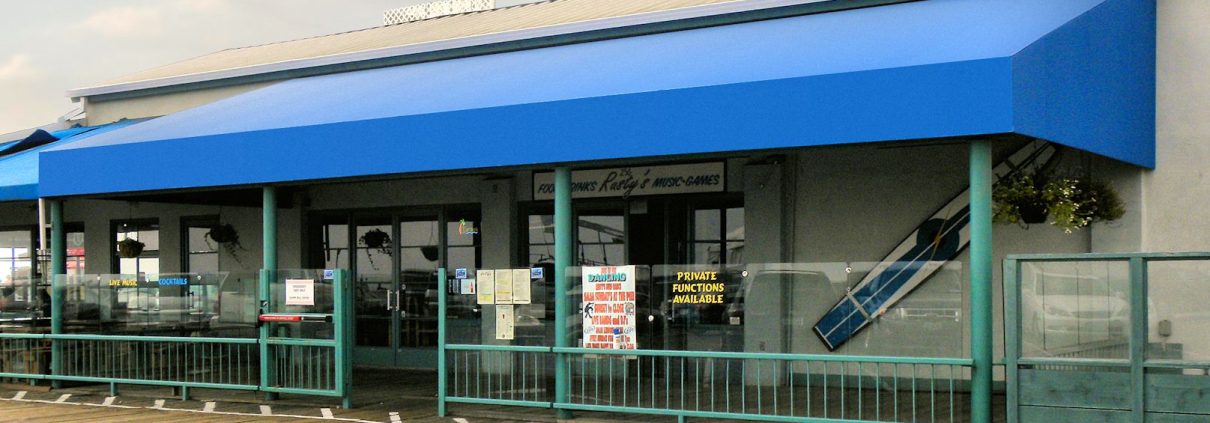10 Factors to Consider When Choosing an Awning for Your Business
Awning selection for your business is a decision that goes beyond aesthetics. Awnings serve multiple purposes, including providing shade, enhancing your storefront’s appearance, and protecting your customers and merchandise from the elements. Whether you are opening a new business or considering an awning upgrade, there are several crucial factors to consider when choosing the right awning for your commercial space. In this article, we will explore ten key factors to help guide your decision-making process.
- Purpose and Functionality
Before diving into awning options, start by identifying the primary purpose and functionality you expect from the awning. Do you need it primarily for sunshade, rain protection, or both? Understanding your business’s specific needs will narrow down the choices and guide you toward the most suitable options.
- Location and Climate
Consider your business’s location and the local climate conditions. Businesses located in regions with high heat may require awnings with UV-resistant fabrics, while those in areas with frequent rain might opt for waterproof materials. Additionally, if your business is in an area prone to strong winds or storms, you should select a durable and sturdy awning that can withstand adverse weather conditions.
- Aesthetic Appeal
A well-chosen awning can significantly enhance the curb appeal of your business. Think about the color, style, and design that will complement your storefront and branding. Awnings come in a variety of shapes, colors, and patterns, allowing you to customize the appearance to align with your business’s identity.
- Branding and Signage
Awnings offer a unique opportunity for branding and signage. Consider incorporating your business name, logo, or tagline onto the awning to increase visibility and brand recognition. Professionally designed and strategically placed branding can attract potential customers and make your business more memorable.
- Size and Space
Determine the appropriate size of the awning based on the available space and your business’s needs. An awning that is too small may not provide adequate coverage, while an oversized one can overwhelm the facade. Measure the dimensions of the area you intend to cover and work with a professional awning provider to find the right fit.
- Material Selection
Awning materials play a significant role in their durability and performance. Common materials include canvas, vinyl, metal, and acrylic fabrics. Each material has its advantages and disadvantages, such as UV resistance, waterproofing, and ease of maintenance. Consider the material’s suitability for your climate and how it aligns with your intended purpose and aesthetic preferences.
- Manual or Motorized Operation
The method of operation is another important consideration. Awnings can be either manually operated or motorized. Manual awnings require physical effort to open and close, while motorized awnings offer convenience with the push of a button or the flip of a switch. Motorized options are especially useful for larger or hard-to-reach awnings but may come at a higher cost.
- Maintenance and Cleaning
Regular maintenance is essential to extend the lifespan of your awning and keep it looking its best. Different materials may require specific cleaning methods and schedules. Ask your awning provider for maintenance guidelines and consider how much time and effort you are willing to invest in keeping your awning clean and well-maintained.
- Local Regulations and Permits
Before installing an awning for your business, check with local authorities and review zoning regulations and permit requirements. Some cities may have specific rules regarding awning size, placement, and signage. Ensuring compliance with local regulations will prevent potential legal issues and fines.
- Budget Considerations
Last but not least, determine your budget for the awning project. Awnings come in a wide price range, depending on factors such as size, material, design, and operation method. Consider your business’s financial resources and the return on investment (ROI) that a well-chosen awning can bring. Keep in mind that a high-quality awning can be a long-term investment that pays off in increased foot traffic and customer satisfaction.
In conclusion, selecting the right awning for your business involves a thoughtful evaluation of various factors, including purpose, location, aesthetics, size, materials, operation, maintenance, regulations, and budget. By carefully considering these factors and working closely with a reputable awning provider, you can choose an awning that not only enhances your business’s appearance but also provides practical benefits to your customers and employees. An awning is not just a decorative addition; it’s a functional and valuable asset that can improve your business’s overall success.





